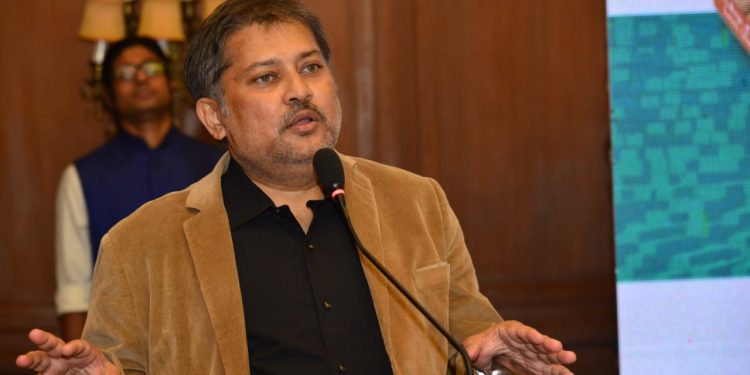Sabarna Roy is a much awarded, critically acclaimed bestselling author of 6 literary books: Pentacles; Frosted Glass; Abyss; Winter Poems; Random Subterranean Mosaic: 2012 – 2018, and Etchings of the First Quarter of 2020. He is the lead author of a technical book, which has been published from the European Union and has been translated into 8 major European languages.
He has been awarded the Literoma Laureate Award in 2019, Literoma Star Achiever Award 2020, Random Subterranean Mosaic: 2012 – 2018 won the best book of the year 2019, the A List Award for excellence in fiction by the NewsX Media House, Certificate for The Real Super Heroes for spreading a spirit of positivity and hope during the COVID-19 Pandemic from Forever Star India Award 2020, the Certificate for Participation in the Indo Russian Friendship Celebration 2020, and the Literoma Golden Star Award 2020: Lifetime Achievement.
Sabarna Roy writes:
The miseries of the Indian population were enhanced manifold because of the sudden onslaught of lockdown all over the country without any advance notice. This impacted all sectors of the economy: rural and urban; industrial and agricultural, and organized and unorganized. The economy crumbled overnight, although the fact is, the economy was slumping for quite a long time since demonetization and unplanned introduction of GST. With such massive shrinkage of the economy, the small and the medium sector and the unorganized sector were heavily hit, and these businesses almost closed down, resulting in lower-middle-class and middle-class job losses all across. The negative impact also reached the organized manufacturing sector; companies lost money and cut-down workforce.
Then came the suffering of the migrant workers as the unlock phase started. There was a reverse migration from cities to villages with almost no hope of any further employment, stigmatization in villages, starvation, etcetera.
The work-from-home adopted by technology companies mostly and also other companies in a hybrid format resulted in birth of new human anxieties and stresses because our urban infrastructure is not geared towards working from homes.

Schools, colleges and universities have been affected intensely due to on-line classes. This has led to another divide in India: Digital and Non-digital sections of India.
To my mind, as an author, the Covid 19 Pandemic brought in newer kinds of gloom that were not in front of us before the Pandemic. On top of this, the ruling dispensation in India carried on with undemocratic, non-transparent, and obfuscating legislation and the judiciary and the executive worked in tandem to usher into a new regime of an oligarchy.
It has become incumbent on the authors to puncture this holy curtain and expose the nexus through human stories, and added to all these is the pathetic state of medical and paramedical physical infrastructure that we have in India, in addition to the paltry resources that the Covid Warriors have been armed with. The stories of Covid Warriors and Covid Survivors reveal a newer existential crisis.
My paper will examine all these aspects and how they will impact the changing literary landscape in India.
The pandemic has given rise to suppressed panic and anticipatory dread in social psyche. To emphasize, in the time of the present pandemic we encounter some very poignant issues like health, social security and existence of “migrant labor” in India, which remain not in the realm of science or medicine but beyond it – in the realm of society, politics, state, economics, media and more.
A new medical-industrial-state-politics complex is growing up. The fissure lines inherent in our everyday practice of medicine, primary care and public health are getting opened up. Some probable and indelible changes are most likely going to take shape in the post-pandemic era.













